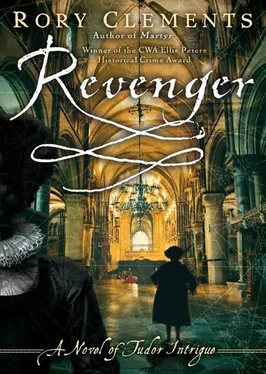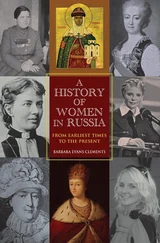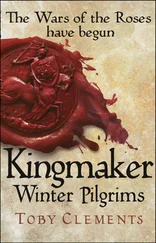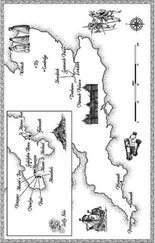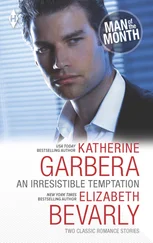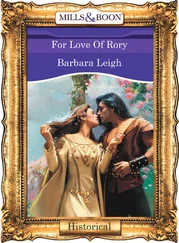Taking the cue, Bess clapped her hands. A servant appeared. “Have Mr. Morley taken away under guard. He is to be held in close confinement until arrangements are made to transfer him to the Tower.”
Shakespeare pulled his sword away and resheathed it. “Thank you, my lady.”
The servant was a powerfully built man. He took Morley by the collar and dragged him to his feet.
“Wait,” Morley said, scrabbling against the footman’s grip.
“Take him away.”
“No, I’ll talk.”
Bess nodded to the servant, who dropped Morley, then retreated from the room.
“Well, Mr. Morley?” Shakespeare demanded again.
“A plague of Satan’s vomit and ten thousand hells on you, Shakespeare. I think you know exactly why I had to do their bidding.”
“McGunn.”
“Of course McGunn. And his demon acolytes Jaggard and Slyguff. They lure you in and trap you.”
“You have secrets…”
“ ‘Here is Master Smith,’ they say. ‘Is he not a fine lad?’ And he was a fine lad, the most golden boy I ever saw. And then comes Master Abel, a slender eleven years with the knowing ways of one twice his age. ‘He is an even finer lad, with Moorish tricks to please you,’ they say. On and on they come-three, four, five, six of them to my chamber over days and weeks, and I am in very heaven.” He sighed and shook his head. “They were beautiful, oh, they were beautiful. But they were rotten, every one. Decayed to the core-like apples that are juicy red on the outside but corrupt within, all eaten by worms.” He uttered a dry, sardonic laugh. “And the law was the least of their threats. McGunn is the Devil. He sees men’s weaknesses and buys their souls. Once bought, you are his forever.”
There was a knock at the library door. The butler entered, a jewel-encrusted box held across his outstretched arms. He placed it on the table in front of Bess, then bowed and retreated.
“I wonder what we have here,” she said, lifting the hinged lid.

S HAKESPEARE RECOGNIZED HIS BROTHER’S HAND straightway. He was aghast as he looked at the array of verses and letters; in the wrong hands it amounted to a death sentence for Will.
“Where did you find these, Mr. Jolyon?”
“In a little-used closet in the music room, my lady. The chest was concealed under jute sacking behind a box of viol strings.”
“Fetch a lighted taper, Mr. Jolyon.”
He bowed low and left the room.
Bess laid the papers out over the floor. There were at least twenty letters and a dozen odes. And though they were signed off with the mark of Robert Devereux, Earl of Essex, each one bore the indelible imprint of Will’s quill.
The three people in this light, airy room, with its soaring shelves of volumes of priceless books, many of them hand-scribed on vellum, stood in a triangle around the parchments. Sir Robert Cecil wanted these verses and letters. They would give him power over Essex, but both Shakespeare and Bess had another thought: these papers must be destroyed. Whatever their differences, they shared this common cause.
Jolyon returned with the flame. Bess took it and dismissed him from their presence. Shakespeare was already busy screwing the papers into balls and throwing them into the fire grate. Bess touched them with the tip of the taper, and the dry papers went up in a brilliant conflagration, the flames leaping into the chimney flue. Within two minutes, they were all gone, turned to black ash. Will was safe.
“Mr. Morley,” Shakespeare said, “remove your doublet.”
Morley folded his arms across his chest.
“Or would you wish me to do it for you?” Shakespeare unsheathed his dagger.
Morley unhooked the front of his doublet and threw it wide open. Papers fell out onto the floor. Shakespeare scooped them up and placed them in the fire.
“You still cannot harm me. I still have the testimony of my voice,” the tutor said.
“We will take our chances on that.”
Morley was silent.
“What were you planning to do with these papers? Sell them?”
“There are those that would pay good money for them. Essex, Cecil…”
“Topcliffe?”
“Oh yes, Mr. Topcliffe would pay very well to do for you and your brother. He would happily take you on a hurdle to the scaffold, Mr. Shakespeare. Perhaps he already has some of the verses…”
Bess shook her head. “I have heard quite enough, Mr. Morley. You are dismissed from my service, without pension or recommendation. Nor do Mr. Shakespeare or I have the slightest interest in your boys. That is between you and God. Good-day to you, sir.” She summoned her butler once more. “Mr. Jolyon, see that Mr. Morley is gone from this house within the half hour. First strip off his clothes and search him thoroughly, then give him new attire and a horse, one fit for the knacker. Do not let him take any belongings, not even a book. They will be sent on later when they have been thoroughly searched. He is never to be admitted again.”
“One last thing, my lady,” Shakespeare said once Morley had been marched from the room. “I must send a message to Sir Robert Cecil. He is most likely on his way to Oxford by now. Might I use the services of two or three of your most trusted retainers to deliver it safely?”
Bess looked doubtful. “What exactly were you thinking of saying in this message?”
Shakespeare held up his right hand. “Nothing that would in any way reflect ill on your ladyship or the lady Arbella. I merely wish to tell him that there will be no wedding. All else is clear to him. You may read it before I seal it.”
“Why not take it yourself, Mr. Shakespeare?”
“Because, my lady, I have urgent business in the north.”

T HE RAIN HAD STOPPED but the September sky was still a dark gray. Shakespeare reined in his mount at the crossroads where the long track from Hardwick Hall intersected the great south-north road. There was nothing more he could do. Cecil would put a ring of impenetrable iron and steel around the Queen. If she were to die on September the eighteenth, as predicted by Dr. Forman’s death chart, it would have to be by God’s hand, not man’s.
He looked both ways, then turned left. Duty could wait.
The journey north, a hundred miles, might be possible in a day if ridden hard. But the gray mare had already suffered harsh treatment on the way to Hardwick from Sudeley, and so he took it more easily, stopping the night at a comfortable wayside tavern where he and the horse received good accommodation and fine food-oats and water for her, roast beef, fieldfare puddings, and ale for him.
He left at dawn. By mid-afternoon he was drawing near to Masham in Wensley Dale, a lush valley in the north of the vast county of Yorkshire. He could scarcely move his horse along for sheep. Great flocks of them crowded the road and the grass banks on either side, all being driven in the same direction. An ancient shepherd laughed and said they were all going to the town’s sheep fair. “Seventy thousand sheep,” he said. “Count that if you please, master. That’ll get you off to sleep.”
Black sheep, filthy mud-arsed sheep, shorn sheep, milk-heavy ewes, and ragged rams. Everywhere you looked there was a sea of sheep. The old shepherd told him there used to be a lot more, perhaps a hundred thousand head in the old days before Henry tore down the great abbeys of Jervaulx and Fountains. “My father used to shepherd them for the silent white monks at Jervaulx. When he and I brought the sheep to the fair, it was proper mayhem, like all the clouds had fallen from the sky and landed on the grass.”
Читать дальше
